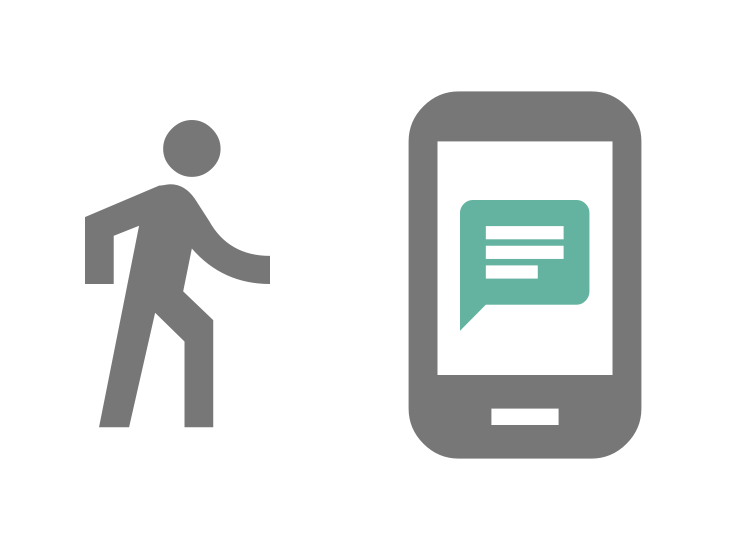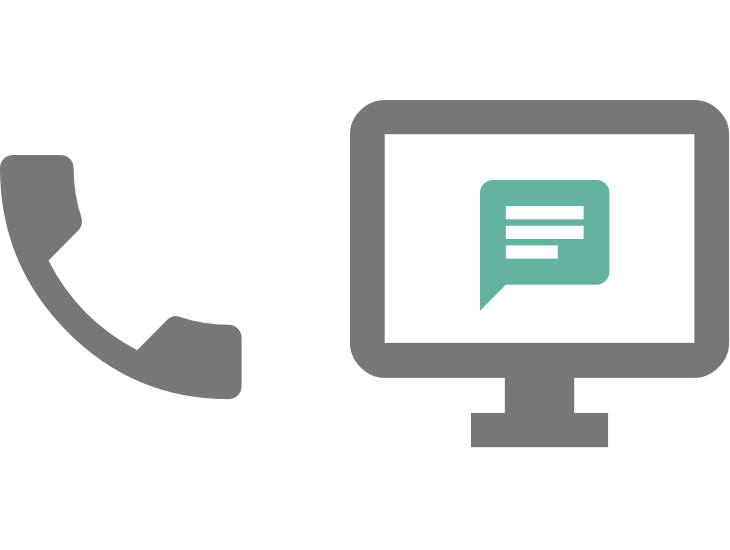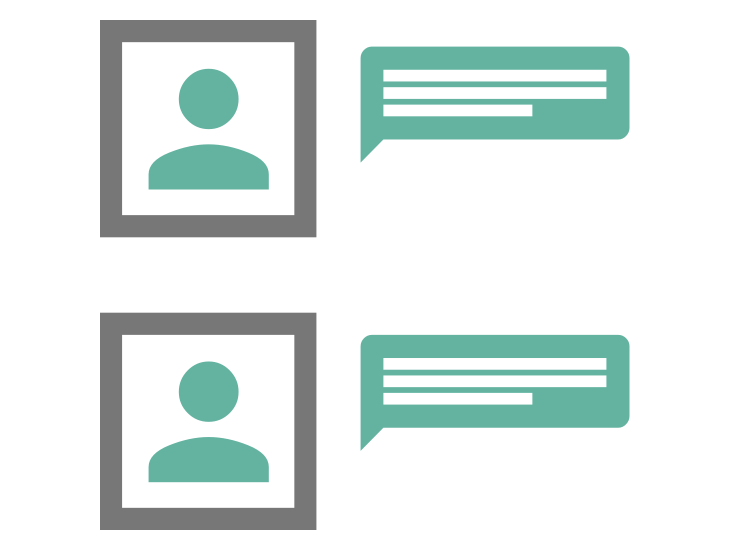GDLive Newsfeed
We check in with people at each stage of the cash transfer process to see how things are going. Take a look at some of their stories as they appear here in real-time.
Learn more about how recipients opt in to share their stories.

access_time
2 years ago
Mwenda
received an initial payment.
"I had wished to raise poultry for a very long time but lack of money had hindered this dream from actualizing. My husband, who I mostly rely on, could not afford to help me buy chicken from the little earnings he made through carrying luggage. However, the cash transfers from Give Directly opened a perfect door for me to procure the birds. Unlike before, I am now a proud owner of two chickens."
View Mwenda's
profile

access_time
2 years ago
Sidi
received a $25 initial payment.
"I used KES 1,500 from the transfer to pay school fees for my sixth-grade daughter, who had missed a day of class owing to a lack of funds. Her father's carpenter job had not generated any income to assist pay off the fee balance. I am glad she happily resumed classes and has never been interrupted since then. Also, the night before the transfer, my family went to bed hungry since the household had run out of food that afternoon. So, the next morning, I spent KES 1,200 on corn flour to prepare meals for my children. I used the remaining funds to purchase a chicken. The idea is to nurture the hen, allow it to reproduce, expand the flock, and make money in the future by selling the matured chickens."
View Sidi's
profile

access_time
2 years ago
Dzendere
received an initial payment.
"Before the cash transfer, my dream was to own poultry and livestock as an investment. When these animals reproduce, I could sell them to earn money for my household’s needs. However, I did not have enough money to start this venture. The transfer presented an ideal source of funds to buy my first chickens. I am now in a position to buy two chickens from the first transfer and I could not be happier."
View Dzendere's
profile

access_time
2 years ago
Sidi
received a $10 initial payment.
"I felt very forlorn and unproductive after losing my source of income as a result of the drought because I had no work to do. For a very long time, I had considered starting a chicken farm, however my lack of money prevented me from doing so. I'm pleased that the transfer of funds made it possible for me to realize my long-held goal, and I have hope that doing so will lead to financial success and other improvements in my life."
View Sidi's
profile

access_time
2 years ago
Linet
received an initial payment.
"After realising that I had received the donation I decided that I was going to buy three hens which eventually cost me KES 600 and then I also bought five kilograms of chicken feed which cost me KES 200 because I was planning to invest in poultry farming so that it could offer me some form of sustainability.Afterwards I was left with KES 2,200 which I decided that I was going to dispose on nutrition, so I ended up buying 10 packets of maize flour, groceries and sardines on the daily and a half a litre of cooking oil."
View Linet's
profile

access_time
2 years ago
Khadija
received a $10 initial payment.
"We are a family of five; my husband, three children, and myself. Burning of charcoal is the main economic activity in our area that my husband and I do to raise income for catering to the family’s basic needs. We currently face hurdles in this activity because it is flooded hence reduced income due to lack of market. The transfers from GiveDirectly came in handy because we had run short of flour and would, therefore, go for some days without food. Using the transfers, I bought eight kilograms of corn flour for KES 800, and a chicken for KES 370 and saved the remaining portion of the transfers for intermittent use."
View Khadija's
profile

access_time
2 years ago
Hamisi
received a $25 initial payment.
"I have a small business in the nearby market center while my spouse sells cooked food in the streets. We have five children who are all in school and the income we earn is not enough to sustain all our needs. Chicken rearing has been my dream project since they reproduce faster and their demands are high too. I am glad I was able to purchase seven chickens for rearing with the first transfer. This is the biggest difference in my daily life because I am hopeful that the income from them will be a boost to our household income and thus we shall be able to provide adequately for my family's needs."
View Hamisi's
profile

access_time
2 years ago
Kahindi
received an initial payment.
"At 69, I cannot actively take part in strenuous tasks to financially support my family. I mostly depend on my son, working as a construction laborer in Mombasa, to provide for the family of seven children. To supplement the little he sends homes, I have been saving through a self-help group as little as KES 10 per day. My contribution to the group can help me occasionally obtain a loan up to KES 500, especially in times of need. However, this does not guarantee a stable income source because sometimes things get tough and the household runs out of food and lacks any means to secure more. This is what happened the evening before the transfer, where we had to drink porridge because there was not enough food. As a result, I spent KES 800 to buy food. I used KES 300 to clear the pending school fee balance of my grandchild who was constantly pulled from class to collect the money. I spent the remaining amount on a chicken, to start rearing and have a stable income source in the future when it breeds."
View Kahindi's
profile

access_time
2 years ago
Kadzo
received a $25 sixth payment.
"My husband and I rely on charcoal burning to provide for our household of three people (plus my mother-in-law). In a good week, the hustle can generate around KES 500. Given the rising food prices, this amount can only provide food for three days, which leaves us starving or borrowing food from neighbors for the rest of the week. In fact, my household had run out of food a week before the transfer and we consecutively slept hungry. I remember calling Give Directly during that week to check when the next transfer would be sent because things were getting tough. This is why I prioritized food for KES 2750 when I received the money. I spent the remaining amount to buy a chicken and start rearing again following the loss of my previous flock of four hens from a chicken disease."
View Kadzo's
profile

access_time
2 years ago
Kadzo
received a $10 initial payment.
"Being the breadwinner of the family, my husband works as a hawker in Mombasa for a living. He sends me at most KES 400 every week for upkeep, which barely meets all household necessities, such as food. This makes hunger one of the major concerns in the household. Four days before the transfer, we ran out of food. We survived on borrowing at least a cup of maize flour from relatives and friends to help prepare porridge for the five children in the house so they would not sleep hungry. As such, when I received the transfer, procuring food was the priority. I spent KES 870 on maize flour. I used KES 300 to buy a chicken to increase my flock to four hens. When these multiply in the future, I can easily generate money from their sale."
View Kadzo's
profile





